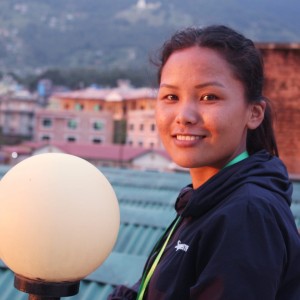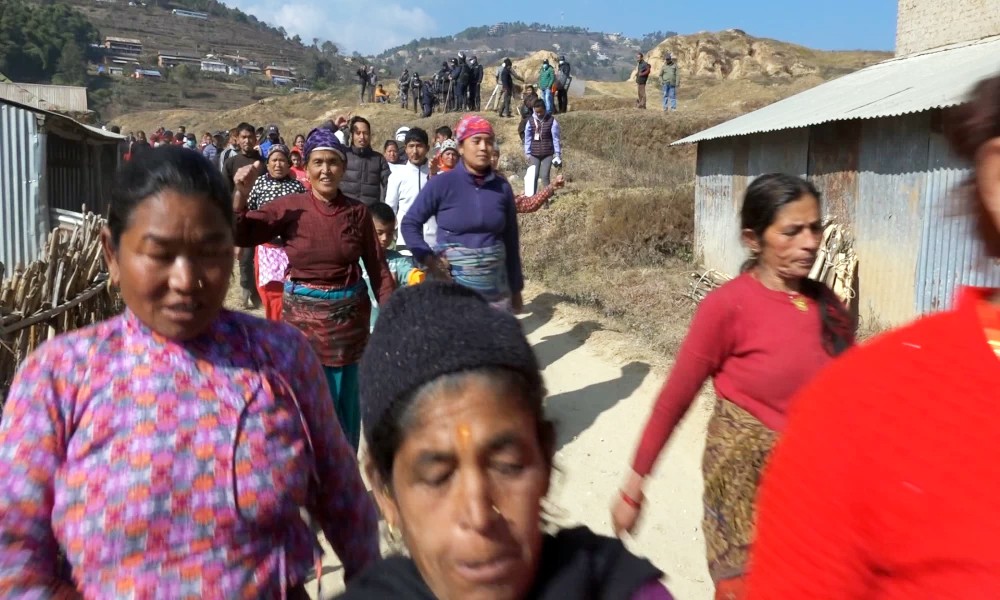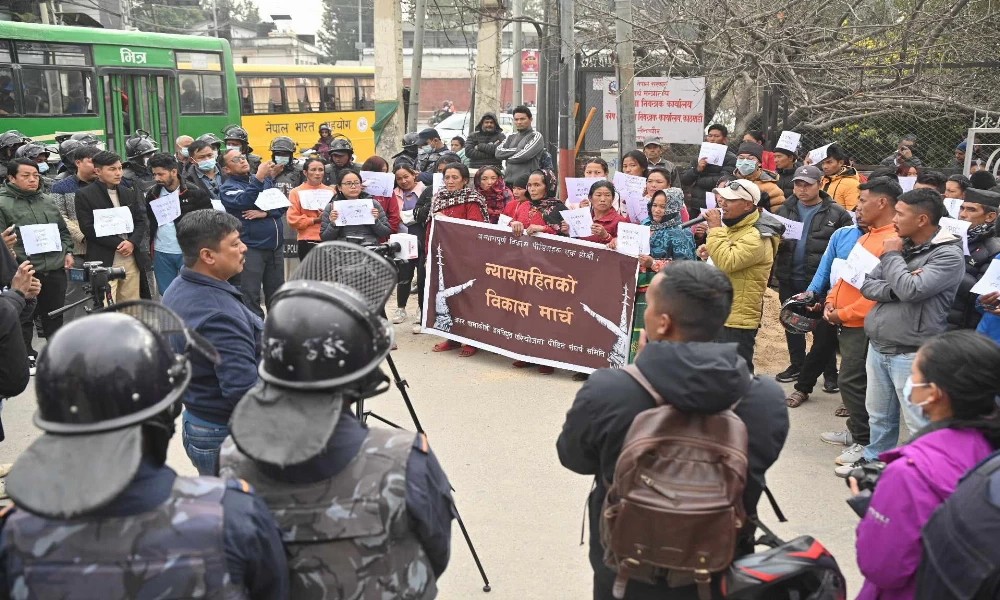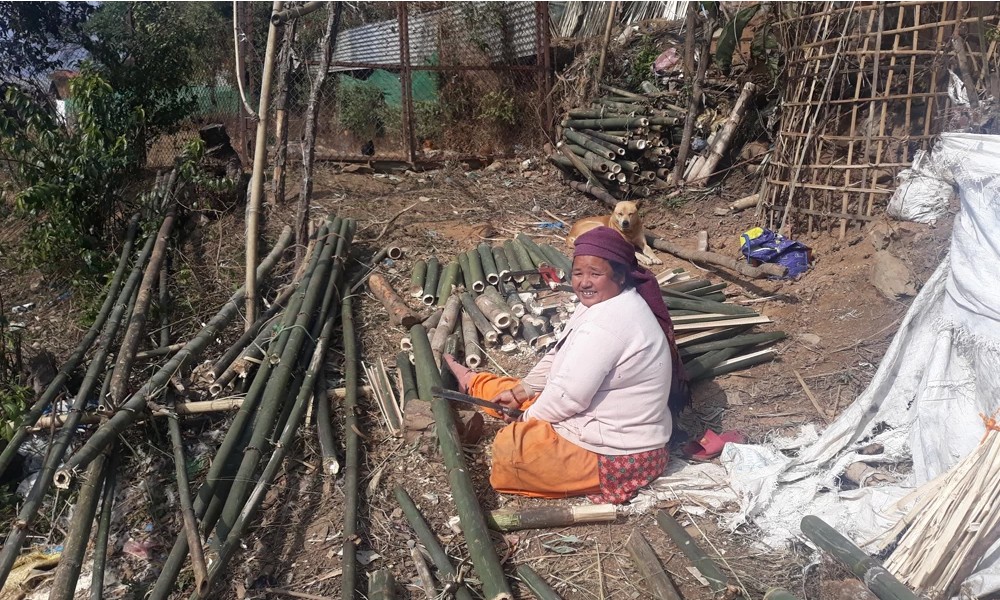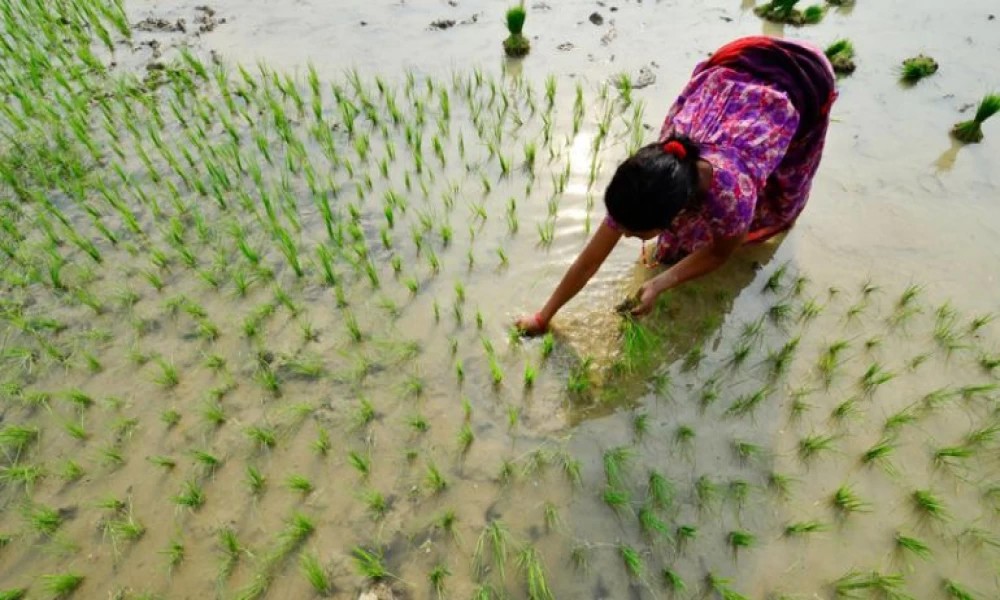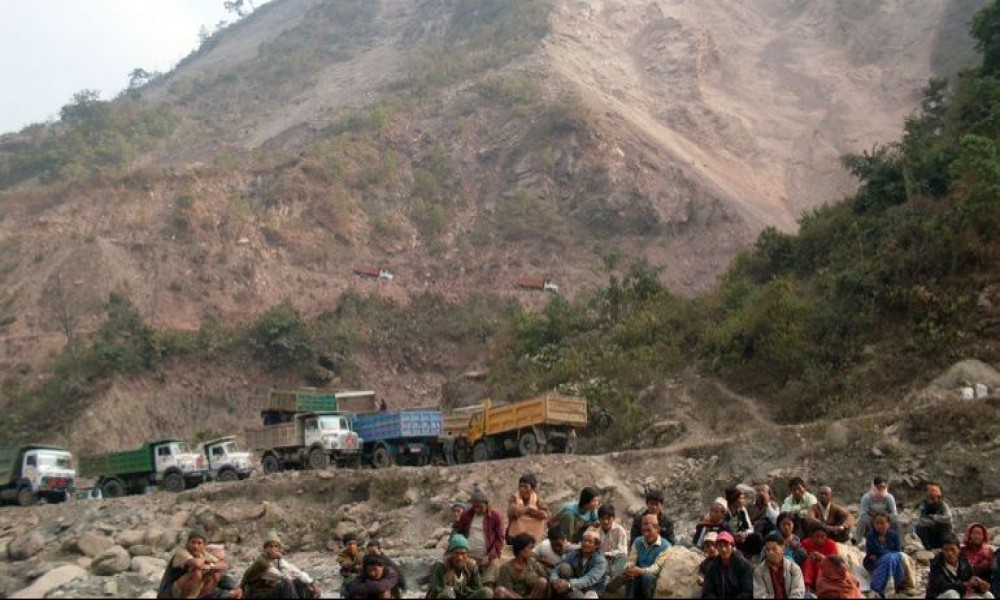Despite the Tamang Indigenous Peoples and other local community members’ long opposition, an armed police camp is going to be set up in Lapsiphedi (Bojheni) village, ward no. 3, in Sankharapur Municipality to advance the construction work of the Upper Tamakoshi sub-station. Locals have long been demanding to relocate the substation, citing that it would impact their customary lands, including their livelihoods and cultural and ceremonial sites, and would cause a negative impact on their health and environment, as well as devalue their land and properties.
On November 17, 2023, in the evening, a large group of police and the armed police force reached Bojheni village with the necessary materials to build a camp. The locals then blocked the road by hurling stones and wood logs; the police, however, removed the obstruction using force. There was a clash between the locals in which some locals were severely injured, and as many as 15 community members were arrested and are now released at the behest of local officials.
Officials of the Nepal Electricity Authority are saying that they have taken the help of the armed police forces and district police to facilitate the construction works and maintain peace and security. However, Tamang Indigenous Peoples and other local community members, including human rights activists, have alleged that the development conducted in such a way is not a real development but rather a militarization.
Locals have long been demanding to relocate the substation, citing that it would impact their customary lands, including their livelihoods and cultural and ceremonial sites, and would cause a negative impact on their health and environment, as well as devalue their land and properties.
According to Indigenous Rights Activist RK Tamang, the incident at Lapsiphedi (Bojheni) is an example of militarization. He accused the government of Nepal of using unnecessary force against those who were peacefully protesting, causing them injuries, and banning them from roaming around in the village, which entails a clear example of not only international human rights violations but also the basic rights of democracy.
The victims of the Upper Tamakoshi power sub-station in Bojheni had been protesting continuously for 322 days. But Ranjit Tamang, the coordinator of the Victims Struggle Committee, accused the government of arresting the locals who were protesting the project by mobilizing many armed police forces and district police at midnight without hearing their long and harsh protest.
Arresting the locals was not limited to Friday night alone. Jogmaya Tamang, a member of the Upper Tamakoshi Struggle Committee who was widely arrested on Saturday, while informing about the incident, said, “On Saturday morning, the police broke the door of our house and arrested us, including guests and others who were sitting inside the house.”
What is militarization?
The forced eviction of Indigenous Peoples from their ancestral land and territory is militarization. The United Nations Office of the High Commissioner for Human Rights (OHCHR) has continued its activities by calling militarization an issue of human rights violations. The OHCHR believes that ‘the use of military force in the name of development is increasing in Asia. The recent report produced by the Asia Indigenous Peoples Pact, an umbrella organization of Indigenous Peoples Organizations in Asia, states that militarization in Asia has been very much legalized forcefully in the name of development.
Some activists are of the opinion that although the act of acquiring the lands of the locals to build the power substation for Upper Tamakoshi and building the armed police camp is legal, it is wrong and illegal from the point of view of human rights.
Former Ambassador and Coordinator of the Tamsaling Struggle Committee, Dr. Ganesh Yonjon, said that setting up an armed police camp on Indigenous Peoples' ancestral land and territory without their Free Prior and Informed consent is an anti-human rights act. In a press statement, the Tamsaling Struggle Committee said, “It is regrettable that the force is being used when there is an option to negotiate through democratic methods and procedures.”
Setting up an armed police camp on Indigenous Peoples' ancestral land and territory without their Free Prior and Informed consent is an anti-human rights act.
The Nepal Electricity Authority employees, along with the government and police authorities, are allegedly beating and threatening the Tamang Indigenous Peoples in Bojheni rather than defending their rights and resolving issues through dialogue. Indra Maya Tamang said that when the police and team members of the central investigation bureau were mobilized day and night to silence the people's voices, members of the entire village became angry.
The government has a plan to build 400 KV, 220 KV, and 132 KV power sub-stations in Sankharapur Municipality ward no. 3, Lapsiphedi (Bojheni), for the distribution of electricity to Kathmandu, the capital city, and other areas of hydroelectricity projects that are built in the Sindhupalchok, Dolakha, and Sunkoshi River basins.
So far, the 5-electric towers of the Tamakoshi-Kathmandu 400 KV transmission line and the sub-station have not been built due to continuous obstacles created by the locals at the construction site in Lapsiphedi (Bojheni), which has strategic importance in Nepal’s electricity development.
Nepal Electricity Authority, the government-owned utility company, is under high time pressure in the construction of this sub-station powerhouse in Lapsiphedi (Bojheni), also because the initial point of the inland power transmission line is to be built with the investment of the government of Nepal and the grant support of the US government under the Millennium Challenge Corporation.


